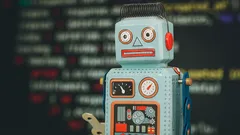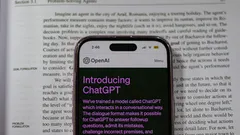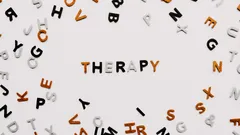98
7
4 minutes
Suggested Articles

The Simple ChatGPT Prompt That Instantly Boosts AI Accuracy and Trust
Boost your ChatGPT experience with a prompt that encourages self-assessment and accuracy. Discover how a simple instruction can enhance AI-generated answers and increase reliability in your tech tasks.

OpenAI’s ChatGPT transforms homework with interactive AI learning mode
AI & Everyday Tech

Tech innovators embrace generative AI as OpenAI challenges Google with smarter search
AI & Everyday Tech

Tech users face real risks as ChatGPT blurs the line with AI-generated Windows keys
AI & Everyday Tech

GPT-5 is about to redefine AI with game-changing human-like abilities
AI & Everyday Tech

AI myths debunked: The real magic behind artificial intelligence revealed
AI & Everyday Tech

Digital health advocates face harsh truths as AI therapy chatbots falter
AI & Everyday Tech

ChatGPT takes command: How AI is reshaping spacecraft control
AI & Everyday Tech

Tech enthusiasts discover how playful AI prompts reveal hidden security risks
AI & Everyday Tech

AI coding assistants like Copilot and ChatGPT are transforming developer workflows
AI & Everyday Tech

Playing video games together strengthens relationships and sparks real connection
AI & Everyday Tech

US crypto pioneers transform bold risk into life-changing fortunes
AI & Everyday Tech

Tech leaders embrace waste-to-carbon solutions as Microsoft bets big on green AI
AI & Everyday Tech

Travelers and campers embrace portable backpack laundry tech for freedom and clean clothes anywhere
Gadgets & Reviews

Sleep experts champion a smart anti-snoring belt for restful nights and healthier mornings
Gadgets & Reviews

Drivers use Google Maps and Waze to avoid fines but risk safety trade-offs
AI & Everyday Tech

App lovers seize this week’s best free premium downloads before time runs out
Smartphones & Apps
 W3 CodeCraft
W3 CodeCraft

Comments